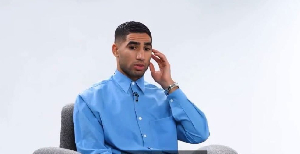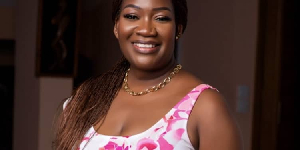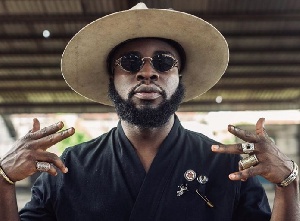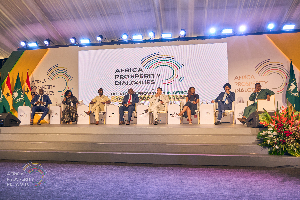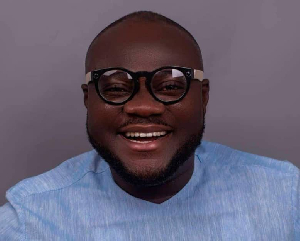I first heard of Kwesi Appiah as a boy in 1981. Coach CK Gyamfi had taken over the Black Stars and was faced with the daunting task of having to beat Zaire in a two-match home and away contest to qualify for the 1982 African Cup of nations in Libya. And it had all started badly. The first league in Accra had ended in a 2-2 draw.
In the Accra match, a Zairean forward called Mayele had succeeded in drawing rings around our usually dependable Accra Hearts of Oak left back Hesse Odamten, and the general consensus had been, that poor old Hesse, who to be fair was enjoying the dying embers of his rather flamboyant and impressive career, would be in even more trouble in the return league in Kinshasa. Something had to be done.
Mr S. K. Mainoo, the then chairman of Asante Kotoko and a member of the Black Stars management committee, knew someone he thought could do the job. But he played for Prestea Mines Stars. And this was long before dependable phone lines, never mind mobile phones.
So the only way to get Kwesi Appiah was for Mr C.K. Mainoo to drive all the way to Prestea the night before the flight to Kinshasa, and knock on Kwesi Appiah's window at dawn;
“I’ve come to take you to Kinshasa” he said to the rather astonished, yawning young man, as he rubbed his hazy eyes to make out who was speaking to him.
Soon, Kwesi Appiah was on the road to Accra to meet his new team mates and another player who had also been drafted in at the very last minute to help boost the Black Stars’ chances – the seventeen year old maestro – Abedi Ayew Pele. In addition, the great Coach C. K. Gyamfi had replaced Offei Ansah at right back with the young Asante Kotoko overlapping full back, Haruna Yusif.
With Adolf Armah anchoring the midfield, and the great George Alhassan who was the Didier Drogba of his time in attack, the stage was set. Incroyable! - The foundations of the myth of the great 1981 Black Stars – Zaire match in Kinshasa, had been laid.
All these changes and re-arrangements had taken place on the blind side of the average football fan. There was none of the aggressive news reporting we have these days, and all we had were GBC TV and GBC 1 and 2 on radio. Nobody had heard of Kwesi Appiah, except perhaps, a few supporters of Prestea Mines Stars.
And few could have imagined that a seventeen year old Tamale Secondary School student, Abedi Pele, would even be considered for the Satellites, let alone the Black Stars.
On that sunny Sunday afternoon on the twentieth of September 1981, I was glued to my dad’s radio as it played some popular music of the time. There had been no panel discussion on the chances of the Black Stars or expert opinions on the strengths and weaknesses of the Zaireans. We listened to “Akow tsi brofo” while waiting for the big announcement.
We waited with trepidation for, those days, it was not unusual to hear at the last minute, that the expected football commentary had had to be cancelled due to technical difficulties. On this day in September 1981 however, they got it right.
“We are pleased to take you over to the Stade des Martyrs in Kinshasa, Zaire, where this afternoon, the Black Stars of Ghana play the Leopards of Zaire in the second leg of the African Cup of Nations qualifiers. Kick-off is at 3pm. Over to our commentary team in Kinshasa…
“Good afternoon ladies and gentlemen. You are welcome to the………” we listened as the commentator strained hard to make himself heard above the cheers in the parked stadium. The voice was further distorted by the intermittent screechy sounds that disrupted the transmission on my dad’s old radio.
I could feel my legs shaking as the national anthems were played. Those were the days when we actually cared about our Black Stars. And my legs shook even more when Kwesi Appiah was mentioned.
I looked at my dad. He shook his head. He had no idea who he was. My mother sat by her sewing machine in the distance pretending not to be interested “Why are you guys so serious?” she would say. “You know you are going to lose” We would ignore her. This was not the time for jokes.
In the very first few minutes of the match and even before the newly assembled Black Stars had had time to settle, the ball was in our net. All hope seemed lost. But soon commenced the famous battle between Kwesi Appiah and Mayele that has stuck in the memory of many a football fan and is the reason he is affectionately called “Mayele”. All we heard in the ensuing commentary was;
Mayele! And Kwesi Appiah is there.
Mayeleeeee! Oh oh oh And Kwesi Appiah is there
Mayele!! Oh no! Kwesi Appiiaaaaaaaah! Oh my God! What a tackle!
And this went on for the better part of seventy minutes till in frustration, the Zairean coach substituted his best player. In the second half, CK Gyamfi, may his soul rest in peace, made an inspired substitution, bringing on Abedi Pele for Adolph Armah. It was a big call, for Adolph was no mean midfielder.
Thus began the footballing masterclass that led Zairean commentators to open their mouths in awe. Incroyable! (Unbelievable), they were overheard saying several times. Ghana scored two quick goals and both followed this same pattern as I recall from the commentary;
“Abedi Pele, playing with no fear. He steps on the ball, beats one man, turns round, beats another, sends the ball right to the overlapping Haruna Yusif. A cross, and George Alhassan is there. It’s a gooooooal!
We won the match 2-1 and qualified for Libya 1982, which we subsequently went on to win as well. So these great players have a special place in my heart. I was vociferous in my condemnation of Kwesi Appiah’s first appointment as Black Stars coach on a matter of principle.
I did not believe that the Black Star job had to be given to a “professional” assistant coach but to someone who had actually managed teams as the top man and been successful. At the time Kwesi Appiah had not done so.
But when he was dismissed as Black Stars coach, Kwesi did not hang around feeling sorry for himself. He went, as far as to Sudan to manage a club side and do very well, winning coach of the year last year. Much against the current trend, he left with the goodwill and blessing of his Sudanese team.
And so we welcome him back home, while still advising him to fight tooth and nail to be his own man and appoint assistants with European experience to help him. I also advise that he be careful not to display any hint of tribal or political bias, in his selection and treatment of players.
May the Lord be with him.
Papa Appiah
Sports Features of Tuesday, 18 April 2017
Source: lexeve1@icloud.com







